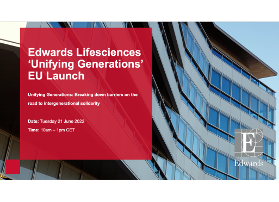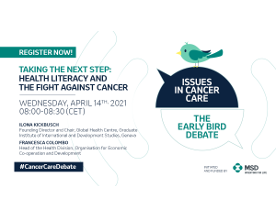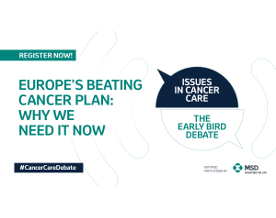Events
“Better Science, Better Health” hosts a series of international conferences to outline research and innovation in adaptive clinical pathways and patient data usage.
Recent Events
Webinar: Equity and Outcomes, Ensuring Fair Access to Healthcare
28 September 2021, 4pm UK
Life expectancy is generally on the increase, including healthy life expectancy. New treatments that have greatly improved the chance of survival following the diagnosis of life-threatening diseases.
However, comparisons of survival rates reveal striking differences among countries for cancers, cardiovascular disorders and other serious non-communicable and communicable diseases, even between countries with a similar GDP. What are the reasons for these differences and, more importantly, what are the best ways to address them?
The aim of the session is to raise awareness among health policy makers, clinical and biotechnology, health professionals, academics and interested public and patients about gaps and needs for equity in health outcomes and fair access to healthcare.
Webinar: Vaccines, Trusted Information and Fake News
27 July, 4pm UK
Within many countries the COVID—19 pandemic is entering a 3rd wave and vaccine
confidence is a live issue. According to an August 2018 edition of the Economist, “Italy, France and Serbia … have lower child-vaccinations rates than Burundi, Rwanda and Senegal.” On a background of differences in regulatory approaches to COVID-19 vaccine approvals and statements critical of COVID-19 vaccine efficacy by national leaders, Belgium at one point in 2021 had received 200,000 units but had only been able to distribute 4% of their quantity due to a lack of acceptance in the general public. In contrast, the WHO notes preparedness to accept a COVID-19 vaccine of 65% in recent surveys in Less Developed Countries.
How do we ensure that valid information regarding vaccines is circulated and accepted at all levels of society both in developed and in less developed countries? How do we disentangle outright vaccine refusal from vaccine hesitancy?
H.R. 3’s international reference pricing misses the mark
By Susan Peschin and Duane Schulthess, April 28, 2021
The White House and Congress have declared that reining in Medicare prescription drug costs to help older adults and people with disabilities is a top priority. But one drug pricing strategy on the table would have an outsized negative impact on people with Alzheimer’s disease and decimate research trying to find effective treatments for it.
This strategy, known as international reference pricing, ties the price that Medicare pays for some drugs to those paid by other countries. The idea was first introduced as a model for Medicare Part B drugs by then-HHS Secretary Alex Azar in 2018. The next year, House Speaker Nancy Pelosi’s drug pricing plan, known as the Elijah E. Cummings Lower Drug Costs Now Act (H.R. 3), significantly expanded the scope to allow federal government use of foreign price controls in direct negotiations with pharmaceutical companies for the cost of 250 prescription medicines in Medicare Part B and Part D. It also extended the negotiated price to insurers and the commercial market at large.
Webinar: Taking the next step: health literacy and the fight against cancer
14 April, 8.30-9.00 CET
Higher degrees of health literacy support patients at every stage of their journeys: they help to navigate decision-making and elevate patients to partners. If combined with health literate institutions, the coproduction of health can improve patient care and help reduce costs of unnecessary and inappropriate medical intervention.
Policy changes to increase health literacy have been notoriously difficult to implement, due also to a lack of evidence about the correlation between measures to increase health literacy and actual outcomes. Several initiatives have taken on the task to create such evidence. Most recently, Europe’s Beating Cancer Plan promises to make cancer literacy a priority for European policy makers, guidelines, and programs of action.
What do we know about the value of health literacy, where do we need to know more? How can we achieve higher degrees of health literacy? What lessons can we draw from the current pandemic? Join two outstanding experts for an Early Bird discussion on health literacy!
Europe’s Beating Cancer Plan: Why we need it now
10 Feb, 2021, 08:30 – 09:00 CET
"Europe’s Beating Cancer Plan” sounds like something that should be around already. With the Europeans carrying 25% of the global population’s cancer burden, a coherent strategy tackling cancer incidence and mortality in Europe is only consequential. Or is it?
Cancer treatment remains a personal and often local matter, and different perspectives exist across Europe on access to cancer care, budgets, and spending. These are reflected in different public health systems and policies at the level of EU member states. Cancer control activities vary greatly within Europe as do the outcomes of cancer care.
Considering high European ambitions, persisting interests in member states, and local sensitivities: What can we expect from Europe’s Beating Cancer Plan? How can it become a success and more than just yet another document?





